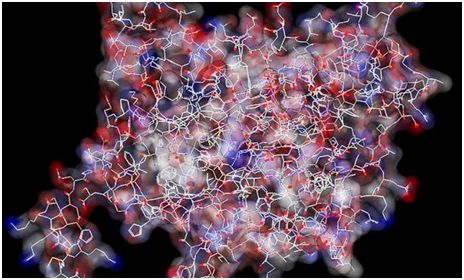New study reveals a new mechanism of action of metformin in the treatment of type 2 diabetes October 29, 2018 Source: Bio Valley For decades, metformin has been the first line of treatment for type 2 diabetes, reducing blood sugar levels by inhibiting glucose production in the liver. Metformin also improves glucose uptake and use in muscle tissue. The effect of metformin on glucose production in the liver is likely to be transmitted through the mitochondrial respiratory chain. However, the mechanism by which this drug increases glucose uptake in muscle tissue remains unclear. Now, in a new study, Professor Sanna Lehtonen of the University of Helsinki in Finland and his team demonstrated that metformin binds directly to the lipid phosphatase SHIP2 in cell culture and animal models, reducing its activity. A decrease in SHIP2 activity increases glucose uptake in muscle cells and reduces cell death in podocytes or glomerular epithelial cells. The results of the study were published online in the FASEB Journal on October 15, 2018, and the paper titled "Metformin increases glucose uptake and acts renoprotectively by reducing SHIP2 activity". Image courtesy of Lehtonen Lab/University of Helsinki. Lipid phosphatase SHIP2 inhibits the insulin signaling pathway. Previous studies have demonstrated in animals that individuals with diabetes have elevated levels of SHIP2 in their kidneys, muscles and adipose tissue. This reduces the ability of tissues to respond to insulin signals and reduce their glucose uptake. Elevated levels of SHIP2 also increase programmed cell death in podocytes. In addition to the animal model, the Lehtonen team also used patient samples in the study. Their analysis showed an increase in SHIP2 activity in the kidney in patients with type 2 diabetes who did not take metformin, and the loss of podocytes was significant. In patients taking metformin, the SHIP2 activity in the kidney is the same as in non-diabetics, and podocyte loss is also lower than in patients treated with other drugs. Lehtonen said, "Our results suggest that lipid phosphatase SHIP2 plays an important role in regulating glucose metabolism and cell death in podocytes. Therefore, the use of metformin or other suitable drugs to modulate SHIP2 activity is particularly useful in controlling type 2 diabetes. Related diabetic nephropathy is crucial." Understanding the new mechanism of action of metformin helps to develop targeted drug therapy The mechanism of action of metformin is being actively studied because it has multiple effects on the body, which makes it possible to treat diseases other than diabetes. A better understanding of its mechanism of action also helps to use this drug to precisely treat a patient population that benefits from it. Lehtonen said, "By combining the results published last spring by Professor Leif Groop and Docent Tiinamaija Tuomi, my team emphasized the importance of metformin in the treatment of certain people with diabetes." Based on a study published in the March 1818 issue of the journal Lancet Diabetes & Endocrinology, Groop and Tuomi have proposed dividing diabetes into five subtypes, one of which is severe insulin resistance diabetes. Patients with this type of diabetes have a very high risk of developing diabetic nephropathy. Groop and Tuomi estimate that patients with this type of diabetes will benefit in particular from metformin. The results obtained by the Lehtonen team support this view. Lehtonen said, "Our results confirm that metformin protects patients from kidney damage by inhibiting SHIP2 activity. This provides a new mechanism by which metformin directly protects the kidney from injury. According to a recent discovery, metformin affects The intestinal flora affects metabolism." New indications and new drugs? The new mechanism of action of metformin has been identified to extend the indications for metformin to diseases such as cancer and cardiovascular diseases other than diabetes, and research in these areas has begun. Metformin may also help regulate aging. Lehtonen said, "Our new study highlights the importance of SHIP2 as a drug target. Previous research supports this view, but it is understood that this most common anti-diabetic drug works precisely through SHIP2 and will We found a new type of SHIP2 inhibitor that is more effective than metformin." Shaanxi Kang New Pharmaceutical co., Ltd. , https://www.apipepdites.com
New study reveals a new mechanism of action of metformin in the treatment of type 2 diabetes
Next Article
Management points of bitter gourd in November
Prev Article
How to use and maintain the motor